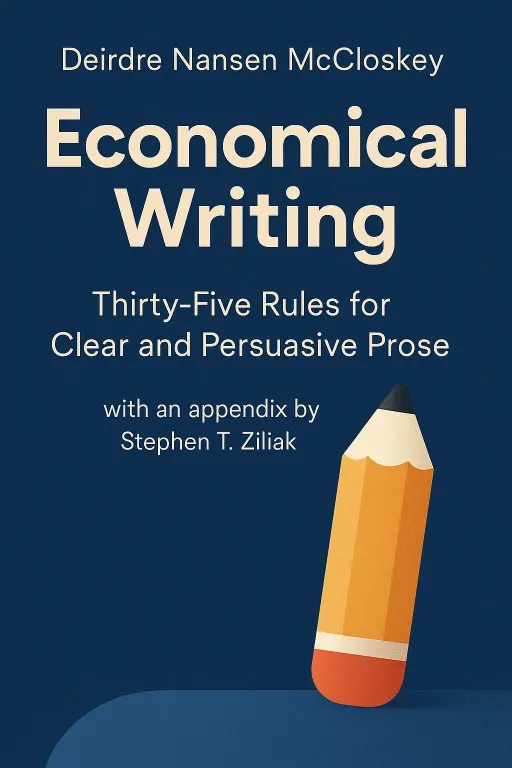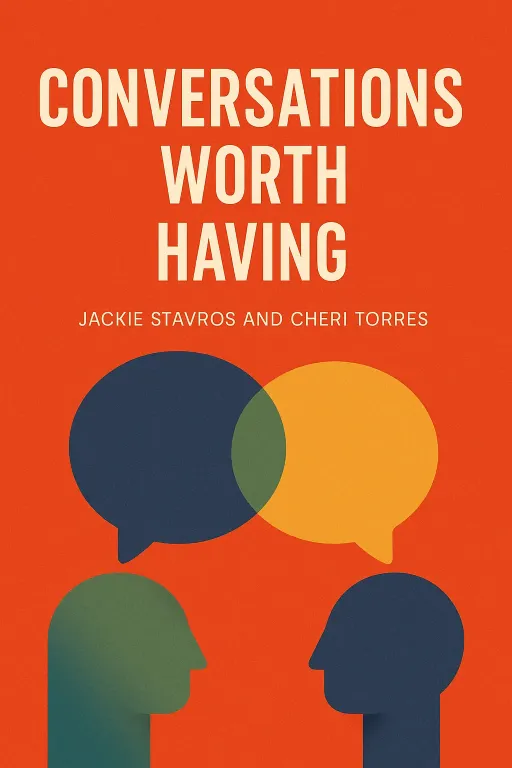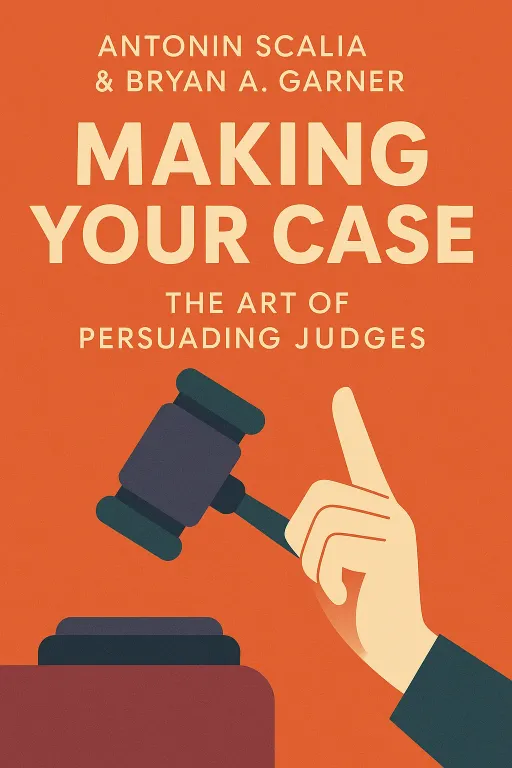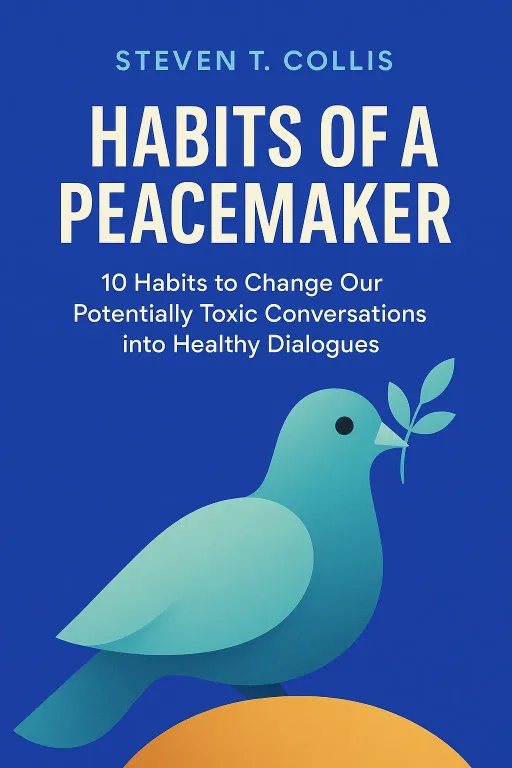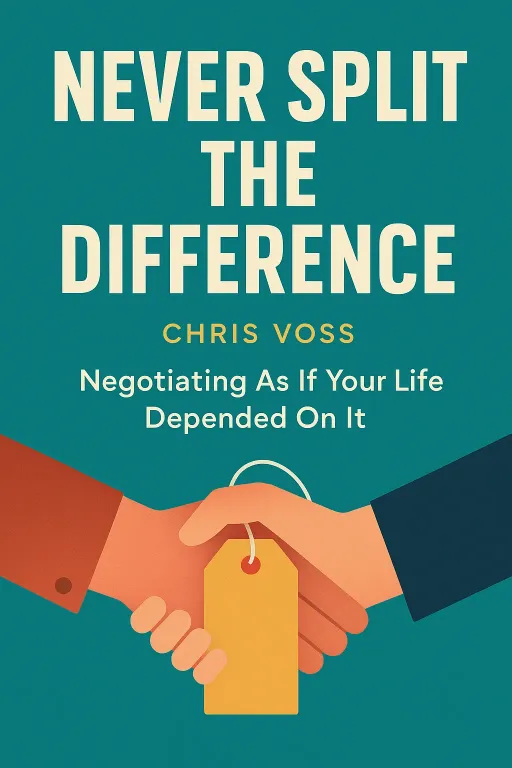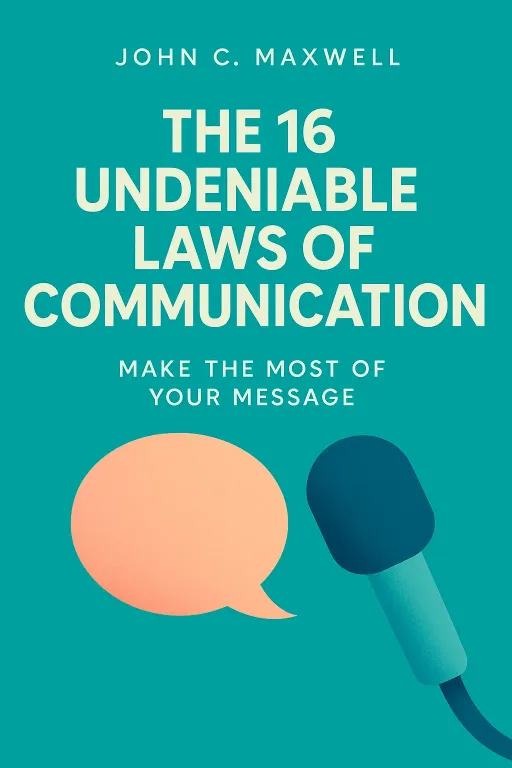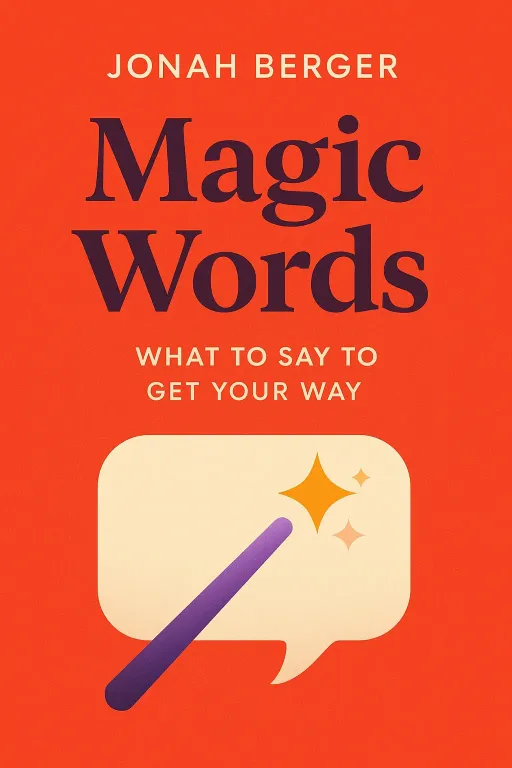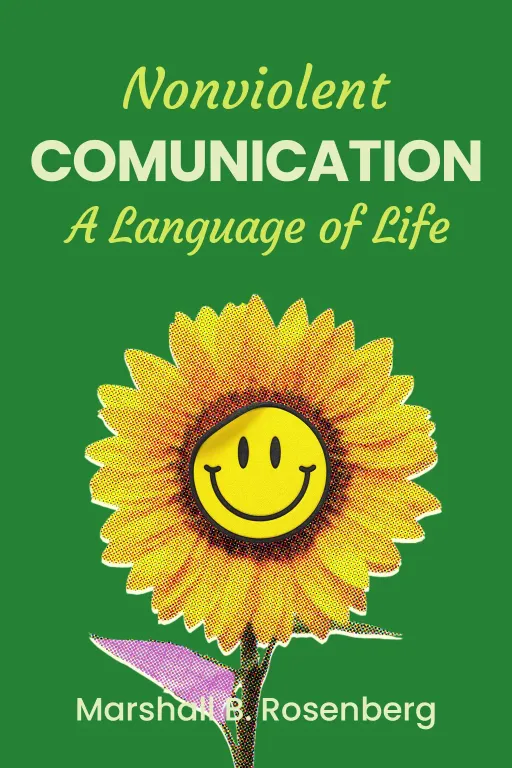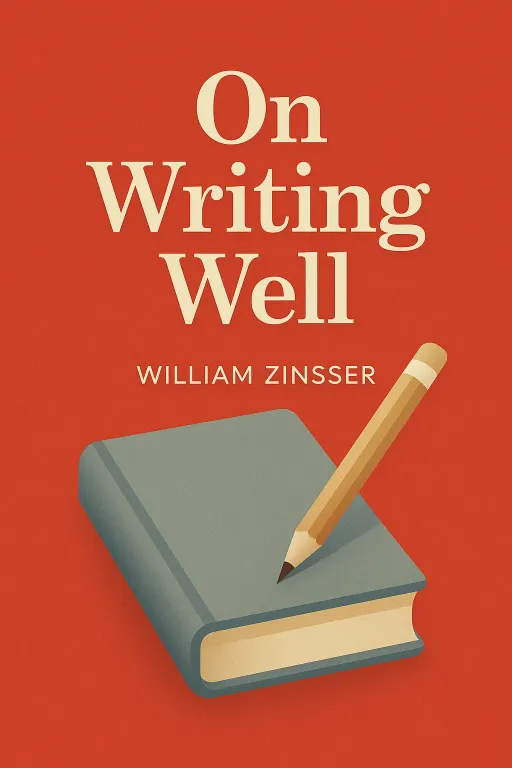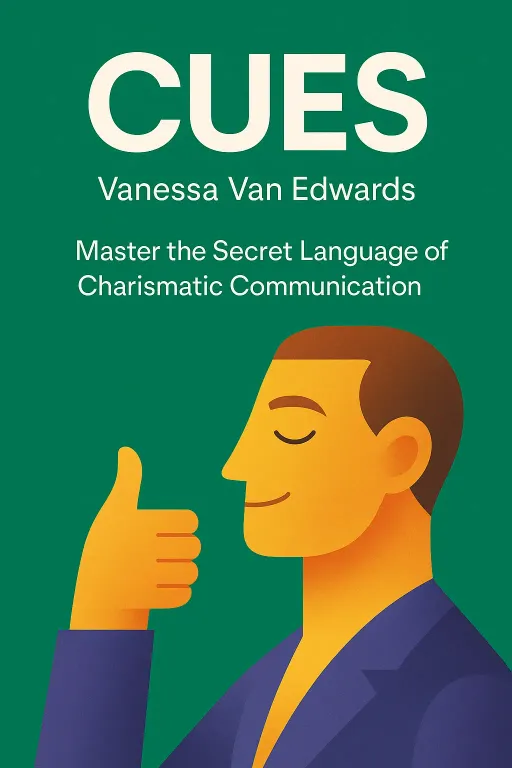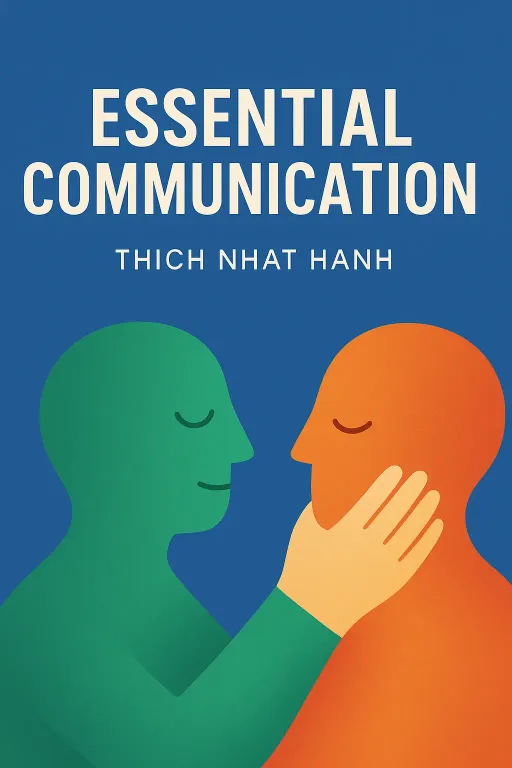
The Zen of Communication
13 minGolden Hook & Introduction
SECTION
Michelle: We're always told to 'talk it out' to solve our problems. It's the go-to advice for everything from a fight with your partner to a workplace disagreement. Mark: Right. Communication is key. That’s what they say. Michelle: But what if most of our talking is actually making things worse? What if our words are the very poison killing our relationships, and we don't even know it? Mark: Whoa, that's a heavy thought. So all my brilliant, well-reasoned arguments during a disagreement might just be... toxic sludge? Michelle: They might be. And that's the core question from a book by one of the most influential spiritual teachers of our time, Thich Nhat Hanh, called Essential Communication. Mark: Ah, okay. This is the Zen master who was nominated for a Nobel Peace Prize by Martin Luther King Jr. himself. I think that gives him some serious credentials on the topic of peace. He wasn't just meditating in a monastery; he developed these ideas about communication while being a major activist during the Vietnam War. Michelle: Exactly. His life’s work was about applying mindfulness to the most difficult situations imaginable. And his central idea in this book is that our communication is like an invisible diet we're constantly consuming. Every conversation, every text, every news article—it's all food. Mark: An invisible diet. I like that. It also terrifies me, because I have a feeling my communication diet is mostly junk food. Michelle: Well, today we’re going to look at how to turn it into a healthy one. First, we'll explore that radical idea: that communication is a form of food that can either heal or harm us. Then, we'll get incredibly practical and discuss six powerful 'mantras'—simple phrases that can revolutionize our most difficult conversations.
Communication as Nourishment: The Invisible Diet
SECTION
Michelle: So, let's start with this idea of communication as nourishment. Thich Nhat Hanh says, "Everything we consume acts either to heal us or to poison us." And he’s not just talking about what we eat. He means what we see, what we hear, and especially what we say to each other. Mark: Okay, so a harsh comment from my boss is like eating a moldy piece of bread. It sits in your stomach and makes you feel sick. Michelle: Precisely. And a kind word from a friend is like a nourishing soup. It warms you and gives you energy. The problem is, we are often completely unaware of what we're "feeding" ourselves and others. We're just consuming and producing words on autopilot. Mark: That feels very true. We're swimming in a sea of information and conversation, and most of it feels... pretty unhealthy. So how do we protect ourselves? Do we just build a wall and not talk to anyone? Michelle: He offers a much more powerful tool: mindfulness. And he uses this incredibly stark metaphor to explain why it's so essential. It’s the story of a cow with a skin disease. Mark: A cow with a skin disease? This sounds... unpleasant. Michelle: It is, but it’s unforgettable. The Buddha told this story. Imagine a cow that has lost all its skin. It's just raw, exposed flesh. Now imagine that cow standing in a field. Insects from the soil, from the trees, from the water—they all come and bite it, constantly. It has no protection. It's in perpetual agony. Mark: Wow. Okay, that's a grim but very clear image. Michelle: The Buddha said that without mindfulness, we are that cow. Our mindfulness is our skin. It's the protective layer that allows us to be in the world without being constantly wounded by toxic communication, negative thoughts, or the anger of others. It lets us discern what is healthy to take in and what is poison. Mark: So mindfulness isn't about floating on a cloud. It's a practical, protective barrier. It's like emotional armor. Michelle: Exactly. It's the ability to be present and aware, so when a toxic comment comes your way, you don't just absorb it. You can recognize it for what it is—someone else's suffering, perhaps—and choose not to let it poison you. But it's not just about defense. It's also about what we produce. He tells another story that shows the healing side of this. Mark: I think I need a healing story after the skinless cow. Michelle: Fair enough. This one takes place at Plum Village, his retreat center in France. He was giving a talk about how relationships are like flowers. To thrive, they need to be watered with loving communication. During the talk, he noticed a woman in the audience who was crying uncontrollably. Her husband was sitting next to her, looking tense. Mark: Oh, I can picture that scene. The awkward tension in the room must have been palpable. Michelle: It was. After the talk, Thich Nhat Hanh didn't speak to the woman. He went to the husband and said very gently, "Your flower needs watering." The husband understood immediately. He took his wife for a drive. For that entire drive, he didn't bring up any of their problems. He only focused on "watering the good seeds." He reminded her of all the things he loved and appreciated about her, all the happy memories they shared. Mark: So he changed the kind of "food" he was offering her in that moment. Michelle: Completely. And the result was astonishing. The woman returned from the drive completely transformed. She was radiant, happy, and joyful. Their children, who had seen their parents sad and irritable all morning, were shocked. They couldn't believe the change. One short car ride, filled with nourishing communication, revitalized a relationship that was clearly on the brink. Mark: That's a beautiful story, but it does feel almost miraculous. Is it really that simple? Can one conversation truly turn a whole relationship around like that? It feels a bit like a movie scene. Michelle: I think that's a fair question. And the book acknowledges that deep-seated problems need more than one conversation. But the principle is what's key. We all have a garden inside of us, with flowers of joy and compassion, but also weeds of anger and despair. What we choose to water is what will grow. In our relationships, we are constantly watering each other's gardens. Most of the time, we're unconsciously watering the weeds by nagging, criticizing, or bringing up old hurts. Mark: We're feeding the suffering. Michelle: Yes. The story shows the profound impact of consciously choosing to water the flowers instead. It might not solve everything overnight, but it can break a negative cycle and create the space for healing to begin. It shifts the entire emotional climate. Mark: Okay, so we need to be mindful of our communication diet, avoid being a skinless cow, and focus on watering the flowers. I get the 'why' and the 'what'. But that brings me to the big question: how? What do you actually say when things get tense and all you want to do is water the weeds?
The Six Mantras: Practical Magic for Loving Speech
SECTION
Michelle: And that is the perfect transition to the most practical part of the book. Thich Nhat Hanh offers what he calls the Six Mantras of Loving Speech. Mark: Mantras. Okay, the word itself might make some people a little hesitant. It sounds very spiritual, maybe a bit out there for a typical argument over who was supposed to take out the trash. Michelle: I get that. And he addresses it. He says you can think of them less as mystical chants and more as "spiritual technology" or "emotional first-aid phrases." They are simple, pre-packaged sentences designed to be used in moments of high emotion to immediately de-escalate a situation and open the door to connection. Mark: Emotional first-aid. I like that. So what are they? Michelle: There are six, but let's focus on a few that are incredibly powerful in conflicts. The very first one is simply: "I am here for you." Mark: "I am here for you." Michelle: That's it. But it's not just about saying the words. It's about practicing it. It means you stop what you're doing, you bring your full presence to the other person, and you offer them your attention. He says the greatest gift you can give someone you love is your true presence. In a world of distraction, being fully there for someone is a radical act of love. Mark: It’s true. Half the time when someone is talking to me, I'm also scrolling through my phone or thinking about a work email. I'm physically there, but I'm not really there. Michelle: And people can feel that absence. It feels like a small rejection. So this first mantra is the foundation. But the one that I think is truly revolutionary is the fourth one: "I suffer, please help." Mark: Okay, now that one sounds hard to say. "I suffer, please help." Honestly, saying that to my partner in the middle of a fight sounds... incredibly vulnerable. And maybe a little dramatic? My instinct is to fight back, to prove I'm right, not to announce my suffering. Michelle: And that's exactly why it's so powerful. Your instinct, our collective instinct, is to punish the other person when they hurt us. We say, "You made me feel this way, and now I'm going to make you pay." We withdraw, we use sarcasm, we yell. We water the weeds of anger in both of us. Mark: Right. It becomes a battle. Who can wound the other one more effectively? Michelle: This mantra completely short-circuits that entire dynamic. Instead of attacking, you are revealing your vulnerability. You're not blaming. You're stating your own emotional reality—"I am in pain"—and you're asking for their help. You're turning an adversary into a potential ally. Mark: You're shifting it from a fight into a collaborative problem-solving session. The problem is no longer "you," the problem is "my suffering." Michelle: Precisely. There's a story in the book about a woman named Elizabeth who practiced this in her marriage. Early on, whenever her husband said something that hurt her, her first impulse was to punish him, to make him feel bad. But after learning this practice, she tried a different approach. Mark: She actually said, "I suffer, please help"? Michelle: She used her own version. She would wait until she was calm, and then say something like, "You said this thing to me earlier, and I really don't understand it. It hurt me. Can you help me understand what was going on for you?" Mark: That takes a lot of courage. What happened? Michelle: What happened was that it opened up a real conversation. More often than not, she discovered his comment had nothing to do with her. He was stressed about work, or something else was bothering him, and it just came out sideways. By asking for help instead of attacking, she got understanding instead of a bigger fight. It transformed their ability to communicate through difficult moments. Mark: That makes so much sense. You stop reacting to the surface-level words and start investigating the source of the pain. It's like being a detective of suffering instead of a soldier in a war. Michelle: What a perfect way to put it. And there's another mantra for when you're on the receiving end of someone's anger. The third mantra: "I know you suffer, and that is why I am here for you." Mark: So when someone is yelling at you, instead of getting defensive, you're supposed to say, "I know you're in pain." That seems even harder! Michelle: It is incredibly difficult. It requires you to see past their anger and recognize the suffering that's fueling it. But imagine the effect. Someone is expecting a fight, and instead, they get empathy. It can be so disarming. It doesn't mean you agree with them or that their behavior is okay. It just means you are choosing to see their humanity in that moment. Mark: You're watering their flower, even when they're trying to hand you a weed. Michelle: Exactly. It's about breaking the cycle. Communication, for Thich Nhat Hanh, is our continuation. Every word, every thought, every action we put out into the world is our legacy. It's what we leave behind. These mantras are tools to ensure that what we leave behind is peace and understanding, not more suffering.
Synthesis & Takeaways
SECTION
Mark: So, when you put it all together, it's a really clear path. It's not just a bunch of abstract spiritual ideas. It's a two-step process. Michelle: Yes, I think so. What are the two steps for you? Mark: First, it's the awareness. It's recognizing that communication is this invisible diet. That every single day, I'm both a chef and a consumer. I'm feeding myself and others with my words, and I'm being fed. And a lot of that food might be toxic. That's the wake-up call. Michelle: That's the "skinless cow" moment. The realization of our own vulnerability and responsibility. Mark: Exactly. And second, once you have that awareness, you need a new recipe book. The mantras are the healthy ingredients. They are the practical tools you can use to consciously offer nourishment instead of poison, especially in those moments when your gut reaction is to reach for the junk food of anger and blame. Michelle: I love that. It’s a perfect synthesis. It’s moving from unconscious consumption to mindful creation. And it’s not about being perfect. The book is very clear on that. It's a practice. Mark: Right. And some readers have noted that the book's focus on "suffering" can feel a bit heavy. But what I'm taking from this is that it's not about dwelling on suffering, but about recognizing it as the root cause of so much miscommunication. Anger is just suffering in disguise. Michelle: And when you understand that, you can respond to the source, not the symptom. You don't argue with the fever; you try to heal the infection. Mark: So the challenge for our listeners this week probably isn't to have zero arguments or to become Zen masters overnight. Maybe it's just to try one small thing. Michelle: What would you suggest? Mark: Maybe not even jumping to the "I suffer, please help" mantra if that feels too big. Maybe just try the first one. The next time you see someone you care about is stressed or upset, just stop, put your phone down, look at them, and say, "I'm here for you." And really mean it. See what happens. Michelle: That's a beautiful, simple practice. Or even just noticing what 'communication food' you're consuming for one day. After a meeting, a phone call, or scrolling social media, just ask yourself: "Did that nourish me, or did it poison me?" The awareness alone can be transformative. We'd love to hear what you discover. Share your thoughts with the Aibrary community. Mark: This is Aibrary, signing off.
